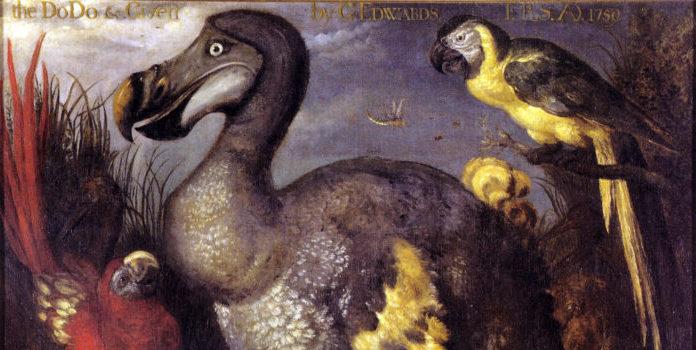(Jacob Bruns, Headline USA) Colossal Biosciences, a Dallas-area “de-extinction” startup, said it plans to use genetic manipulation to bring back the long-extinct dodo bird, the Washington Times reported.
The company, which uses genetic-engineering technology to bring back hybridized clones of extinct species, has been given $150 million to bring the dodo back via its closest relative, the Nicobar pigeon.
If successful, the company also has designs to resurrect the wooly mammoth and a fox-like predatory marsupial called a thylacine, or Tasmanian tiger.
Per Colossal Scientific Advisory Board member Beth Shapiro, the company plans to release the birds back into the wild once they have been successfully re-created.
“The dodo is a prime example of a species that became extinct because we—people—made it impossible for them to survive in their native habitat,” she claimed.
“… [A]s the first to fully sequence the dodo’s genome, I am thrilled to collaborate with Colossal and the people of Mauritius on the de-extinction and eventual re-wilding of the dodo,” she added.
But Shapiro and others at Colossal expect to encounter difficulties in imitating natural genetic variations.
“Once a species is extinct, it’s really not possible to bring back an identical copy,” she said.
“The hope is that we can use, first, comparative genomics so we can get at least one, and hopefully more, dodo genomes that we can use to look and see how dodos are similar to each other, and different from things like the solitaire,” she continued, referring to another extinct flightless relative of the dodo, the Rodrigues solitaire.
According to Colossal investor Erik Anderson, the company’s genetic manipulations are cause for hope.
“Colossal is a new symbol for hope in species preservation and conservation,” he said. “Their de-extinction achievements are making it possible for ecosystems to return to their intended state, which is an incredible breakthrough in biodiversity.”
Still, some may eye warily any talk of genetic manipulation following the recent COVID-19 pandemic, which resulted from presumably well-intentioned efforts to manipulate organic viruses using gain-of-function research that relied on a similar process.
Colossal’s work also may call to mind the premise of the Michael Crichton’s 1990 bestseller Jurassic Park—later turned into a popular movie franchise. In it, researchers use dinosaur DNA from a mosquito trapped in amber to genetically resurrect the extinct species for a theme park gone awry.

